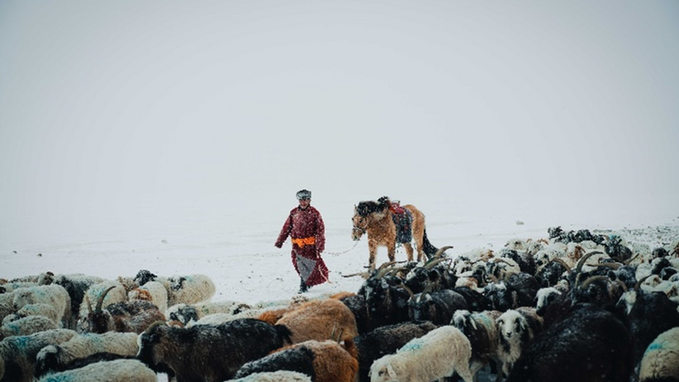Mongolia is currently battling one of its most severe winters in nearly five decades, with frigid temperatures and harsh weather conditions impacting a staggering 76% of the country since November. Dubbed “dzuds”, the bitter cold has plunged temperatures as low as -50°C, resulting in the tragic loss of over 4.7 million livestock. Since November, relentless cold and heavy snowfall have blanketed 76% of the nation, unleashing a humanitarian crisis of unprecedented proportions.
The devastation has dealt a severe blow to the livelihoods of 75% of nomadic herder households, whose existence is intricately linked to their animals. Severe blizzards have compounded the crisis, trapping over 188,000 people in affected areas. Thankfully, diligent search and rescue efforts have managed to save over 3,757 individuals thus far.
As the winter wears on, concerns mount over the escalating toll on livestock, with projections suggesting that deaths could surpass 15 million by the end of March. Already, more than 3,000 households have suffered the loss of over 70% of their animals, exacerbating the humanitarian crisis gripping the nation.
The severity of the situation has prompted both government action and international aid efforts to provide relief and support to affected communities. The International Federation of Red Cross and Red Crescent Societies has issued an urgent appeal for assistance, recognizing the dire need for humanitarian aid to alleviate the widespread hardship inflicted by this unprecedented winter onslaught.
Scientists attribute the frequency and intensity of such extreme weather events, including dzuds, to the effects of climate change. As Mongolia grapples with the aftermath of its harshest winter in half a century, concerted efforts are underway to mitigate the immediate impacts and address the long-term implications of climate-related challenges on the nation’s vulnerable populations.



